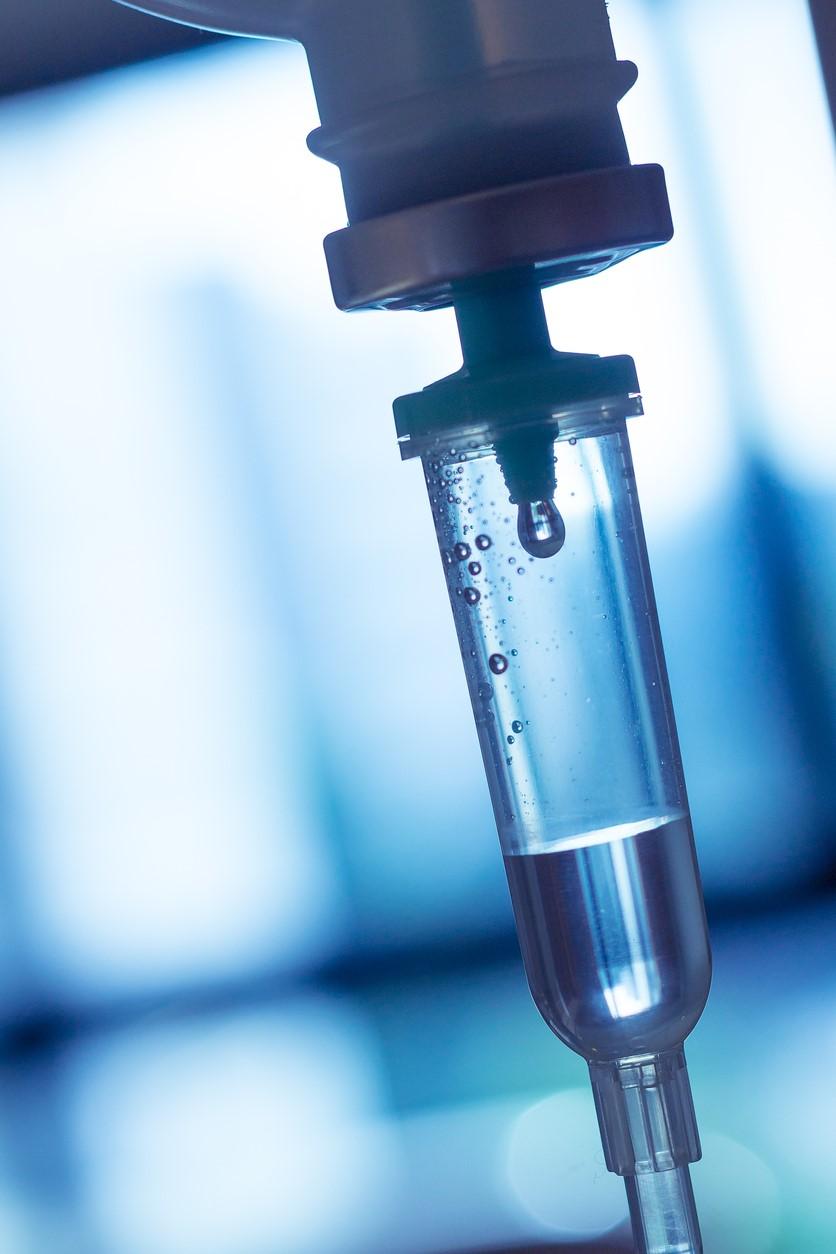A study in the New England Journal of Medicine (NEJM) this week shows that Eli Lilly's COVID-19 convalescent plasma–derived virus-neutralizing monoclonal antibody treatment (LY-CoV555) reduced viral loads, lowered the severity of symptoms, and had no serious adverse effects in outpatients.
The data from a phase 2 trial confirm preliminary results in September from a smaller cohort of outpatients—those visiting clinics—with similar outcomes.
Animal studies of neutralizing antibodies have shown promising results, with significant reductions in viral loads in the upper and lower respiratory tracts where SARS-CoV-2, the virus that causes COVID-19, is thought to bind and cause disease. Neutralizing antibodies like LY-CoV555 attach to the spike protein of SARS-CoV-2 to prevent viral attachment and entry of the virus into cells of the upper and lower respiratory tracts.
The Blocking Viral Attachment and Cell Entry with SARS-CoV-2 Neutralizing Antibodies (BLAZE-1) trial administered varying doses of LY-CoV555 to outpatients with recently diagnosed mild or moderate COVID-19. The trial is part of an ongoing study with multiple treatment arms that will ultimately enroll more than 800 participants.
From Jun 17 to Aug 21, the researchers randomly assigned 452 COVID-19–positive patients with mild or moderate symptoms at 41 US locations to groups receiving a single, 1-hour intravenous infusion of one of three doses of LY-CoV555 (700-, 2,800-, and 7,000-milligram [mg]; 309 patients) or placebo (143 patients). Patients were evaluated for post-infusion viral loads at day 11 and clinical outcomes such as hospitalization, ER visits, or death through day 29, and treatment safety.
Reduction in viral loads, symptom severity
The study authors found a significant decrease in viral load for patients receiving the 2,800-mg dose, lower by a factor of 3.4 compared with baseline placebo levels (-0.53, 95% confidence interval [CI], -0.98 to -0.08; P = 0.02). Smaller reductions in viral load were observed for patients receiving the 700- and 7,000-mg doses.
Patients receiving any LY-CoV555 dose had lower severity of symptoms (graded from "0" for no symptoms to "3" for severe symptoms) on days 2 to 6 than the placebo group. Change from baseline symptom score continued to be better in the treatment groups versus the placebo through day 11, and similar safety profiles for both groups.
COVID-19–related hospitalization or emergency room visit rates were 1.6% (5 of 309 patients) in the antibody group and 6.3% (9 of 143 patients) in the placebo group, suggesting an association between higher viral clearance and lower hospitalization rates. The hospitalization rate was more striking among patients 65 years or older with a body mass index of 35 or more— 4% and 15% respectively for the antibody and placebo groups.
No patient in the LY-CoV555 group had a serious adverse event, versus one in the placebo group. The percentage of all adverse events was similar: 22.3% for the treatment group and 24.5% for the placebo group.
"These data indicate that the treatment is safe," the study authors conclude. "The patients who received LY-CoV555 had fewer hospitalizations and a lower symptom burden than those who received placebo, with the most pronounced effects observed in high-risk cohorts. If these results are confirmed in additional analyses in this trial, LY-CoV555 could become a useful treatment for emergency use in patients with recently diagnosed Covid-19."
Trial halted for hospital patients
The interim analysis comes 1 day after the National Institutes of Health scrapped a clinical trial of LY-CoV555 for 326 hospitalized patients, finding that it was unlikely to improve outcomes in this patient population.
A pause in the study's enrollment was triggered on Oct 13 by the Data and Safety Monitoring Board (DSMB) when a preset safety boundary was crossed that showed differences in the clinical status of hospitalized patients in treatment and placebo groups. No significant safety concerns were ultimately identified, and the DSMB recommendation to halt the trial this week stemmed from a lack of clinical benefit for hospitalized patients.
Eli Lilly scientists suspect that hospitalized patients—as opposed to those in outpatient settings—may show a lack of clinical benefit from LY-CoV555 because of a longer course of infection, more severe symptoms, and receiving different treatments than non-hospitalized patients.
"For these reasons, hospitalized patients may have less benefit from neutralizing antibodies, which are a supplement to the patients' own immune system, as they may have developed their own endogenous antibody response and be in a phase of disease characterized by inflammatory responses to virus," the company wrote in an Oct 14 news release.
Potential for early-stage intervention
Eli Lilly researchers remain confident that LY-CoV555 may prevent the disease progression of earlier-stage COVID-19 patients. The phase 2 study of outpatients and a planned phase 3 study focusing on antibody treatment in residents and staff of long-term care facilities continue to move forward.
"It is important to treat people with COVID-19 as soon as possible after diagnosis in order to forestall development of more severe disease," said Peter Chen, MD, of Cedars-Sinai in Los Angeles and first author of the NEJM study, in an Eli Lilly press release this week. "Our findings indicate that neutralizing antibodies may have the potential to be useful in this early-stage intervention," he added.





















